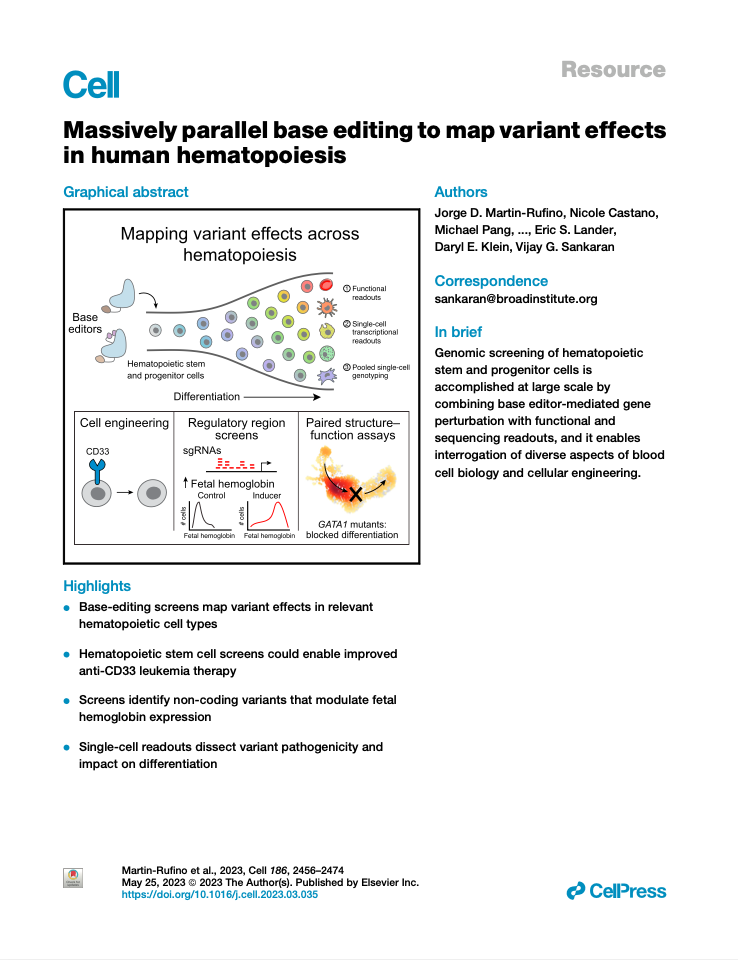
Massively parallel base editing to map variant effects in human hematopoiesis
Systematic evaluation of the impact of genetic variants is critical for the study and treatment of human physiology and disease. While specific mutations can be introduced by genome engineering, we still lack scalable approaches that are applicable to the important setting of primary cells, such as blood and immune cells. Here, we describe the development of massively parallel base-editing screens in human hematopoietic stem and progenitor cells. Such approaches enable functional screens for variant effects across any hematopoietic differentiation state. Moreover, they allow for rich phenotyping through single-cell RNA sequencing readouts and separately for characterization of editing outcomes through pooled single-cell genotyping. We efficiently design improved leukemia immunotherapy approaches, comprehensively identify non-coding variants modulating fetal hemoglobin expression, define mechanisms regulating hematopoietic differentiation, and probe the pathogenicity of uncharacterized disease-associated variants. These strategies will advance effective and high-throughput variant-to-function mapping in human hematopoiesis to identify the causes of diverse diseases.